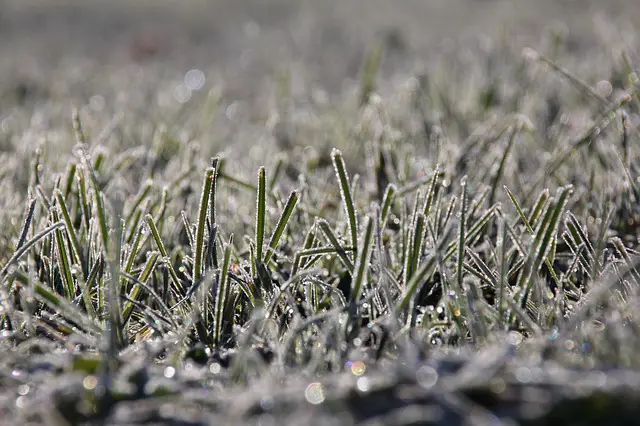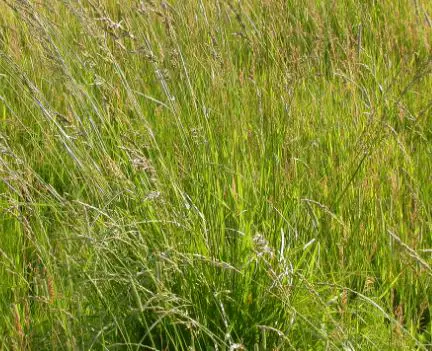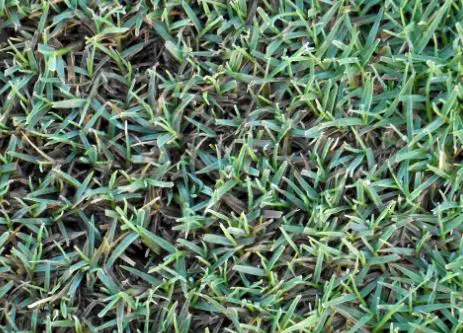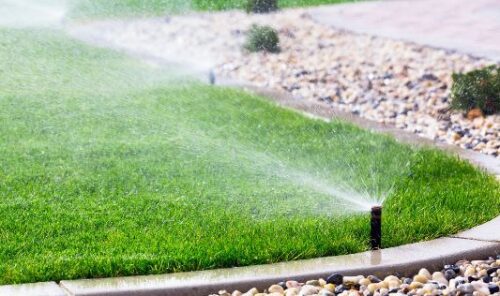The winter season can be a tough time for your lawn, especially in Charlotte where the weather can be unpredictable. With freezing temperatures, snow, and frost, it’s important to take care of your lawn to ensure it stays healthy and green. By properly maintaining your lawn during the winter, you can prevent damage that can affect the growth and appearance of your lawn in the spring. In this post, we’ll share some essential tips to help you master winter lawn care in Charlotte. From preparing your lawn for the winter to managing snow and ice, we’ll provide you with all the information you need to keep your lawn healthy and beautiful all year long. With our expert tips, you’ll be able to maintain a beautiful lawn that will make all your neighbors jealous!
The Importance of Winter Lawn Care in Charlotte
When it comes to maintaining a beautiful and healthy lawn in Charlotte, winter care plays a crucial role. Although winters in the Queen City may not be as harsh as in some other parts of the country, they still present unique challenges for lawn care enthusiasts. Neglecting your lawn during the winter months can lead to a dull, patchy, and lackluster lawn come springtime.
Charlotte experiences relatively mild winters characterized by occasional frost, sporadic snowfall, and fluctuating temperatures. These conditions can take a toll on your lawn if not properly cared for. The importance of winter lawn care lies in preserving the health and vitality of your grass, ensuring its ability to withstand the winter elements, and setting the foundation for a lush and vibrant lawn in the upcoming seasons.
One of the key concerns during winter is the potential for cold damage. Frost and freezing temperatures can cause the grass blades to become brittle and susceptible to breakage. Additionally, prolonged periods of moisture can lead to the development of diseases such as snow mold or brown patch. These issues can damage the structure and aesthetics of your lawn, making it difficult to bounce back once spring arrives.

Understanding the unique challenges of winter lawn care in Charlotte
Winter lawn care in Charlotte comes with its own set of unique challenges that homeowners need to be aware of in order to maintain a healthy and vibrant lawn throughout the colder months. Known for its fluctuating temperatures and occasional snowfall, Charlotte’s winters can be unpredictable and demand special attention when it comes to lawn care.
One of the main challenges during winter in Charlotte is the potential for frost damage. With temperatures often dropping below freezing at night and rising during the day, lawns can be susceptible to frost damage. This can result in brown patches, weakened grass, and overall poor lawn health. Understanding how to protect your lawn from frost is crucial in maintaining its vitality during the winter season.
Another challenge specific to Charlotte’s winter is the occasional snowfall. While snow can create a picturesque winter landscape, it can also pose problems for your lawn. Heavy snowfall can lead to compaction, which can damage the grass and inhibit its growth. Additionally, snow mold, a fungal disease that thrives in cold and moist conditions, can develop under the snow, causing unsightly patches on your lawn.
Furthermore, Charlotte’s winter can bring periods of drought and dryness. While it may not be as severe as in other seasons, it is important to ensure that your lawn receives adequate moisture during these dry spells. Proper watering techniques and monitoring the moisture levels of your lawn will help prevent dehydration and keep your grass healthy.
Preparing your lawn for winter: Steps to take before the cold sets in
As winter approaches in Charlotte, it’s crucial to take proactive steps to prepare your lawn for the colder months ahead. By investing a little time and effort now, you can ensure that your lawn remains healthy and vibrant, ready to thrive when spring arrives.
The first step in preparing your lawn for winter is to clean up any debris and fallen leaves. Raking or using a leaf blower will help to prevent these organic materials from suffocating your grass and causing disease or mold to develop. It’s also important to remove any remaining weeds or dead plants, allowing your lawn to have a fresh start when the growing season returns.
Next, it’s time to give your lawn a final mowing for the season. Set your mower blades to a lower cutting height than usual, but be careful not to scalp the grass. This will help to prevent snow mold and other winter-related diseases from taking hold. Additionally, cutting the grass slightly shorter will reduce the risk of matting caused by heavy snowfall.
Once your lawn is trimmed, it’s essential to give it a nourishing boost. Apply a winterizing fertilizer that is specifically formulated for cool-season grasses. This type of fertilizer will provide your lawn with the nutrients it needs to stay healthy during the winter months, promoting strong root growth and ensuring a quick recovery in the spring.
Another important step in preparing your lawn for winter is to aerate the soil. Aerating involves creating small holes in the ground to allow air, water, and nutrients to penetrate deep into the root zone. This process helps to alleviate soil compaction, which can become more pronounced during the winter due to freezing and thawing cycles. Consider renting an aerator or hiring a professional to ensure this task is done correctly.
Lastly, don’t forget to water your lawn adequately before the cold sets in. While it’s tempting to scale back on watering during cooler months, it’s important to keep your grass hydrated. Deep watering a few days before the first freeze can help to minimize winter stress and ensure that your lawn’s root system remains healthy.

Nearly all of Charlotte grass breaks down like this: Tall Fescue makes up 80% of the lawns in Charlotte. 15% are Bermuda whereas Zoysia, Bluegrass, Ryegrass and Centipede make up the opposite 5%.

Tall Fescue is taken into account a cool season grass and performs finest in the cooler temperatures of spring and fall. In the course of the spring and fall, fescue lawns standout with wealthy inexperienced coloration and are very engaging. It has a clump kind progress behavior which implies it has restricted spreading capacity. The one solution to restore a broken fescue garden is reseed it. Re-seeding or over-seeding can solely be accomplished efficiently in the autumn and requires aeration and constant watering for 21 days.

Bermuda is taken into account a heat season turf and performs finest in the hotter climate we expertise in the summer season months. When the Fescue is brown in the summer season, Bermuda is at its finest with nice coloration and texture. It does require irrigation in the summer season, however 1/3 that of Fescue. Bermuda is taken into account a self-repairing, unfold kind progress grass. It has underground spreading roots name rhizomes and floor spreading roots referred to as stolons. It doesn’t require seeding for broken areas, however its aggressive progress outcomes in extra edging and mattress weeding. Bermuda is comparatively illness free. Bermuda performs poorly in the shade. The largest downside for Bermuda is the truth that it goes dormant and turns fully brown after the primary frost and doesn’t inexperienced-up till mid April.
So when ought to I winterize?
What’s a Winterizer?
Your garden’s nutrient wants change in the autumn in preparation for the chilly climate forward. Winterizing fertilizers are excessive in potassium, the third quantity listed on the fertilizer label.
Potassium is an important nutrient in general plant well being. It really works on the mobile stage to strengthen and harden crops from prime to backside, making them extra tolerant of chilly and stress. Potassium additionally helps a plant soak up different vitamins, making it an necessary part of balanced feeding to your garden.
The opposite two vitamins in fertilizer are nitrogen, the primary quantity (chemical name: N), which promotes leaf and stem progress; and phosphorus, the center quantity (chemical name: P), to boost root progress and fruit manufacturing.
Winterizers Are for Cool-Season Grasses
Most business winterizers are formulated for cool-season grasses resembling fescue and bluegrass. These kind of lawns:
- Have their peak rising season in the autumn, in order that’s a good time to feed them.
- Want elevated potassium and decreased nitrogen because the season progresses.
Some garden care professionals consider {that a} fall software of winterizer is the one most helpful factor you are able to do for cool-season lawns, and the only option should you’re solely fertilizing as soon as. Among the many fundamental business fertilizers, winterizers are extra balanced than turf-builders, so that they’re a more sensible choice for as soon as-a-12 months feeding.
Heat-Season Grasses Beware
Winterizers shouldn’t be used with heat-season grasses (Bermuda, St. Augustine, zoysia, centipede) as a result of they:
- Go dormant in the winter whereas an software of fertilizer spurs new progress.
- Develop in hotter climates the place winterizing is much less of a difficulty.
- Whereas heat-season grasses want potassium, it ought to be utilized throughout spring and summer season as an alternative of fall.
Do I Must Winterize My Lawn?
- Conduct a soil take a look at. If it reveals satisfactory ranges of potassium in your soil, you don’t want winterizer.
- Should you’ve been feeding your garden with balanced vitamins all season (resembling natural fertilizer or compost), you shouldn’t want to fret about winterizing, as there’ll nonetheless be loads of potassium out there in the soil throughout fall.
- Cool-season grass will profit from fall feeding. You need to use a winterizer or one other fertilizer so long as it accommodates each nitrogen and potassium. Or complement your garden all through the season with potassium from natural sources.
- For heat-season grasses, wait till late spring to fertilize and feed with balanced vitamins.

Mowing and trimming tips for winter lawn care in Charlotte
Maintaining a beautiful lawn during the winter months in Charlotte requires careful attention and specific mowing and trimming techniques. While growth may slow down, it’s essential to continue caring for your lawn to ensure its health and vitality come spring. Here are some expert tips to master winter lawn care in Charlotte when it comes to mowing and trimming.
1. Adjust the mowing height: During the winter, it’s important to raise the height of your mower blades slightly. Aim to keep your grass at around 2 to 2.5 inches in height. This will provide better insulation against the cold and help protect the roots.
2. Avoid mowing on frosty or wet grass: Mowing on frosty or wet grass can cause damage, leading to uneven cuts and potential lawn diseases. Wait for the grass to dry out before mowing to ensure a clean and even trim.
3. Don’t scalp your lawn: Resist the temptation to give your lawn a close shave during the winter. Scalping, or cutting the grass too short, can expose the roots to freezing temperatures and increase the risk of damage. Stick to the recommended mowing height to maintain a healthy lawn.
4. Use sharp blades: Sharp mower blades are essential for a clean cut. Dull blades can tear the grass instead of cleanly trimming it, leading to a ragged appearance. Regularly inspect and sharpen your mower blades to ensure optimal performance.
5. Trim with caution: While regular mowing may not be necessary during winter, occasional trimming of overgrown areas or edges can help maintain a neat appearance. Use a string trimmer or edger to carefully trim any long or uneven growth, taking care not to damage the grass or soil.
Fertilizing your lawn throughout the iciness months
Fertilizing your lawn at some point of the iciness months in Charlotte is a essential step in maintaining a healthful and vibrant lawn all year round. While many house owners might imagine that lawn care is only important at some point of the hotter seasons, wintry weather fertilization plays a vast position in preparing your garden for the upcoming spring.
The key to successful winter fertilization lies in deciding on the proper form of fertilizer and making use of it at the ideal time. In Charlotte, where the winters are rather slight, it’s far endorsed to use a sluggish-release nitrogen fertilizer with a method mainly designed for cool-season grasses consisting of fescue or ryegrass.
The timing of fertilization is vital to make sure ideal effects. It is first-rate to apply the wintry weather fertilizer in overdue fall, round October or early November, before the floor freezes. This permits the vitamins to penetrate the soil and be easily to be had for the grass to absorb all through the dormant period.
Winter fertilization presents numerous benefits to your lawn. Firstly, it strengthens the root device, selling average grass health and resilience. This is specially important in regions with fluctuating wintry weather temperatures, as sturdy roots can higher withstand freezing and thawing cycles. Additionally, the vitamins furnished by means of the fertilizer assist the grass shop strength, enabling it to get better quickly when spring arrives.
When making use of the wintry weather fertilizer, it’s miles crucial to observe the producer’s instructions and use an appropriate spreader settings to ensure even coverage. It is likewise essential to avoid over-fertilization, as excessive amounts can lead to nutrient runoff, which could harm the surroundings.
Dealing with common winter lawn issues in Charlotte, including weeds and pests
Winter lawn care in Charlotte can gift a few precise demanding situations, in particular in relation to dealing with commonplace problems like weeds and pests. While the colder temperatures may additionally sluggish down the boom of your garden, it’s vital to live proactive so one can ensure a healthy and vibrant lawn once spring arrives.
One of the maximum common winter lawn issues in Charlotte is the presence of weeds. Cool-season weeds, consisting of chickweed, clover, and annual bluegrass, generally tend to thrive inside the milder winter weather. It’s essential to take steps to save you them from taking over your garden. Regularly look into your garden and manually cast off any seen weeds. Applying a pre-emergent herbicide in overdue fall also can assist save you weed seeds from germinating.
Another mission throughout the iciness months is handling pests which could purpose harm on your garden. While a few pests may additionally grow to be less energetic within the colder temperatures, others, which includes grubs and voles, can nevertheless be a nuisance. It’s essential to keep an eye fixed out for symptoms of pest interest, together with damaged turf or tunnels within the soil. Applying appropriate pest control measures, consisting of insecticides or traps, can assist mitigate the effect of these pests for your garden.
In addition to weeds and pests, it is also important to deal with any underlying lawn fitness issues that may be exacerbated throughout the winter. Poor drainage, compacted soil, and shortage of nutrients can all make contributions to a susceptible and prone lawn. Consider aerating your lawn to enhance soil compaction and permit for better water and nutrient absorption. Applying a iciness fertilizer especially formulated for cool-season grasses can also assist offer the essential nutrients in your lawn to resist the winter months.
By taking proactive measures to cope with not unusual wintry weather garden troubles in Charlotte, you could make sure that your garden remains healthy and resilient throughout the winter season. Keeping weeds at bay, controlling pests, and addressing underlying garden health issues will set the degree for a lush and colourful lawn as soon as spring rolls round.
Protecting your lawn from frost and freezing temperatures
As wintry weather arrives in Charlotte, it’s vital to defend your garden from frost and freezing temperatures to make sure its fitness and vitality come springtime. The cold weather can be harsh on grass, causing damage and hindering its growth potential. Luckily, there are numerous powerful measures you can take to guard your lawn at some point of the iciness months.
Firstly, keep in mind applying a layer of defensive mulch to insulate the soil and shield the grass roots from extreme temperatures. This will help prevent frost heaving, which occurs when the freezing and thawing cycles reason the soil to expand and agreement, potentially uprooting the grass.
Another essential step is to keep away from immoderate foot site visitors in your garden while it is frosty or frozen. Walking on frozen grass can reason the blades to break and bring about unpleasant patches come spring. Encourage circle of relatives individuals and visitors to paste to specific walkways to minimize harm.
Furthermore, watering your lawn as it should be can play a critical position in wintry weather care. It’s crucial to strike a balance between providing enough moisture to keep the grass hydrated with out overwatering and promoting ailment. As the temperatures drop, lessen the frequency of watering however make sure the grass receives enough water to prevent it from becoming too dry.
In areas in which prolonged freezing temperatures are expected, it might be useful to cowl susceptible vegetation and grass with frost blankets or burlap. This extra layer of safety can defend them from the most harsh elements and maintain a more solid temperature.
Lastly, it’s advisable to keep your lawn clear of debris, together with fallen leaves or branches, during the iciness. This particles can smother the grass and create an surroundings for pests and sicknesses to thrive. Regularly rake or blow away any collected debris to maintain a wholesome lawn.
Proper watering practices for iciness lawn care in Charlotte
Proper watering practices are crucial for maintaining a healthful lawn throughout the winter months in Charlotte. Although the grass won’t require as much water as it does inside the summer season, it nevertheless wishes good enough hydration to live on and thrive.
During the wintry weather, the general rule of thumb is to water your garden once every two to 3 weeks. However, this can range depending on numerous factors together with rainfall, temperature, and the kind of grass you have.
Monitoring the moisture degree of your lawn is key to decide when it wishes watering. One powerful manner to test is by using inserting a screwdriver or a soil moisture meter into the ground. If it goes in easily and the soil feels wet, your garden is sufficiently hydrated. If it’s difficult to push the device into the floor and the soil feels dry, it’s time to water.
When watering your garden in the course of iciness, it’s crucial to accomplish that within the morning. This permits time for the grass to dry before midnight, reducing the hazard of fungal diseases. Watering early in the day also facilitates save you water from freezing on the grass blades, which could reason damage.
It’s best to water deeply and rarely rather than frequently with shallow watering. This encourages the grass to expand a sturdy root gadget, making it greater proof against drought and different stressors. Aim for approximately 1 inch of water in keeping with watering consultation, that is sufficient to penetrate the soil to a depth of 6-eight inches.
Consider the usage of a soaker hose or a sprinkler gadget with low-attitude nozzles to ensure even distribution of water. Avoid overwatering, as excessive moisture can result in waterlogged soil and encourage the increase of sickness-inflicting fungi.
Remember to alter your watering time table based on climate situations. If there may be a big quantity of rainfall, you could need to lessen or pass watering altogether. Conversely, at some stage in dry spells, you could need to increase the frequency of watering.
Tips for preserving a wholesome lawn throughout the iciness months
Maintaining a wholesome lawn for the duration of the winter months may be a mission, specifically in regions with chillier climates like Charlotte. However, with the right technique and a touch extra care, you may ensure your lawn remains in top shape even in the coldest of seasons.
1. Keep it easy: Before the first snowstorm, ensure to clean your garden of any particles, inclusive of leaves or branches. This will save you them from suffocating the grass and inhibiting its increase while spring arrives.
2. Aerate the soil: Winter can result in compacted soil, which restricts airflow and nutrient absorption. To combat this, don’t forget aerating your lawn earlier than iciness units in. This procedure entails creating small holes within the soil to allow for higher water and oxygen movement.
Three. Continue watering: While it may seem counterintuitive, it is crucial to keep watering your garden for the duration of the wintry weather. However, alter the frequency and amount to account for the decreased evaporation fee. Aim for deep, infrequent watering to encourage wholesome root growth.
Four. Mow at the right top: Before wintry weather, mow your lawn barely shorter than regular. This will assist save you snow mould, a commonplace fungal disease that thrives in moist, matted grass. However, keep away from slicing the grass too short, as it could strain the vegetation and lead them to greater liable to harm.
Five. Avoid immoderate foot site visitors: During the wintry weather, the grass is more fragile and at risk of damage. Try to limit foot visitors on your lawn, specifically whilst it is covered in snow or frozen. Encourage family contributors and site visitors to apply exact walkways instead.
6. Apply winter fertilizer: Consider applying a sluggish-launch, iciness-precise fertilizer to offer your garden with the vital vitamins all through the dormant length. This will assist it stay wholesome and resilient, ready to get better as soon as spring arrives.
7. Protect in opposition to snow and ice: Snow and ice can be harsh for your lawn. Avoid piling snow on grassy regions, as it is able to lead to compacted and damaged turf. If vital, use snow boundaries or markers to redirect foot visitors and protect susceptible sections of your garden.

